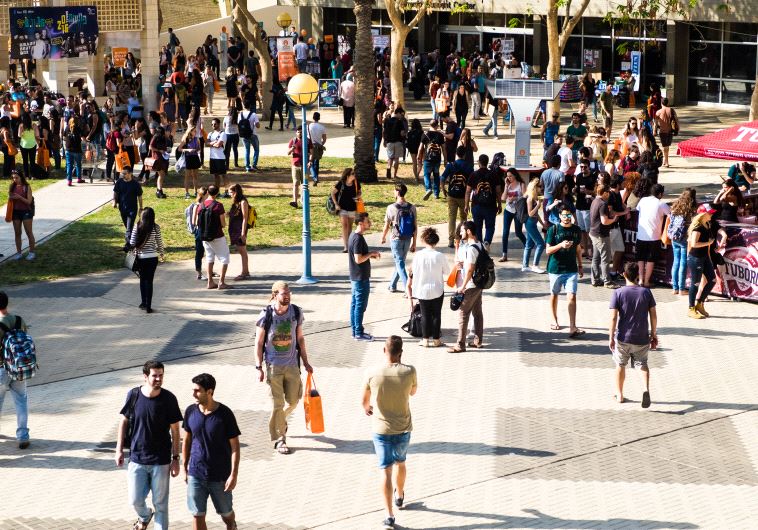Israeli students kick off higher education academic year
Some 234,965 students will be enrolled in bachelor’s programs, 63,120 will pursue master’s degrees, and 11,075 will study in doctoral programs.
 Opening of the 2016-2017 Academic Year at Ben-Gurion University.(photo credit: DANI MACHLIS/BGU)Updated:
Opening of the 2016-2017 Academic Year at Ben-Gurion University.(photo credit: DANI MACHLIS/BGU)Updated: